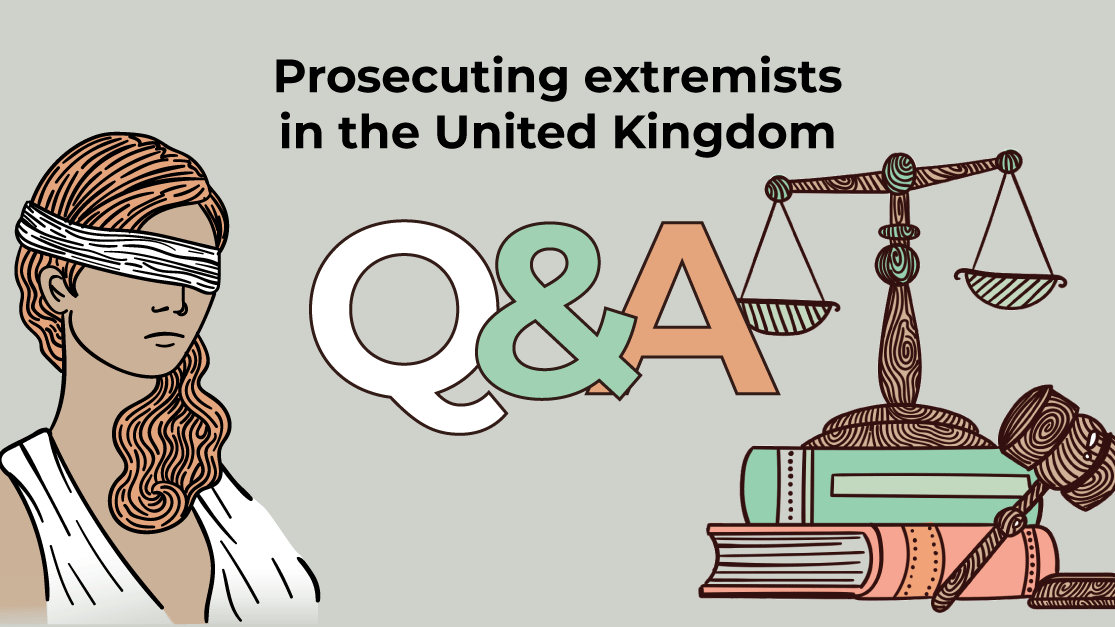Are offenders in NI more likely to be convicted under non-terrorism legislation?
Yes, we found that NI-related offenders are far more likely than other motivation groups to be convicted of terrorism-related offences (compared to terrorism or violent extremism offences).* This is a strong and clear effect.
Are Islamist and right-wing offenders more likely to be prosecuted under terrorism legislation?
Islamist offenders are more likely than other groups to be convicted of terrorism offences. Right-wing offenders were the most likely of all groups to be convicted of violent extremism. These effects are smaller than that for NI offenders.
Are sentences longer in E&W? And are sentences longer for Islamist offenders?
We did not find evidence that sentences in E&W are significantly longer than in other jurisdictions. Some high outliers for sentence length in E&W may account for perceptions of higher sentences in E&W. We also did not find evidence that Islamist offenders receive longer sentences than NI-related or right-wing offenders.**
Do females receive shorter sentences than males?
Yes, we found that female extremist actors receive shorter sentences than males.
What factors help predict sentence length?
Ethnicity (white vs. non-white), age, jurisdiction, and motivation were not significant predictors of sentence length. An individual expected to receive the greatest sentence based on the model is a male with co-accused offenders, who does not plead guilty, is accused of multiple counts, and is charged with a terrorism-related offence.
Has sentence length increased over time?
Sentence length appears relatively steady over time. It appears that noteworthy terrorism events in the UK may impact the number of similarly motivated cases sentenced in subsequent years, but do not appear to impact sentence lengths.
* Terrorism offences are those offences under terrorism legislation but excluding those offences considered violent extremism. Terrorism-related offences are those offences under other legislation or the common law but which are considered terrorist-related. Violent extremism offences are those offences which “foment, justify or glorify terrorist violence in furtherance of particular beliefs; seek to provoke others to terrorist acts; foment other serious criminal activity or seek to provoke others to serious criminal acts; or foster hatred which might lead to inter-community violence in the UK" (Crown Prosecution Service, 2015).
** Key findings do not account for severity of offences. See the full report for further investigation of severity.
Copyright Information
As part of CREST’s commitment to open access research, this text is available under a Creative Commons BY-NC-SA 4.0 licence. Please refer to our Copyright page for full details.
IMAGE CREDITS: Copyright ©2024 R. Stevens / CREST (CC BY-SA 4.0)






